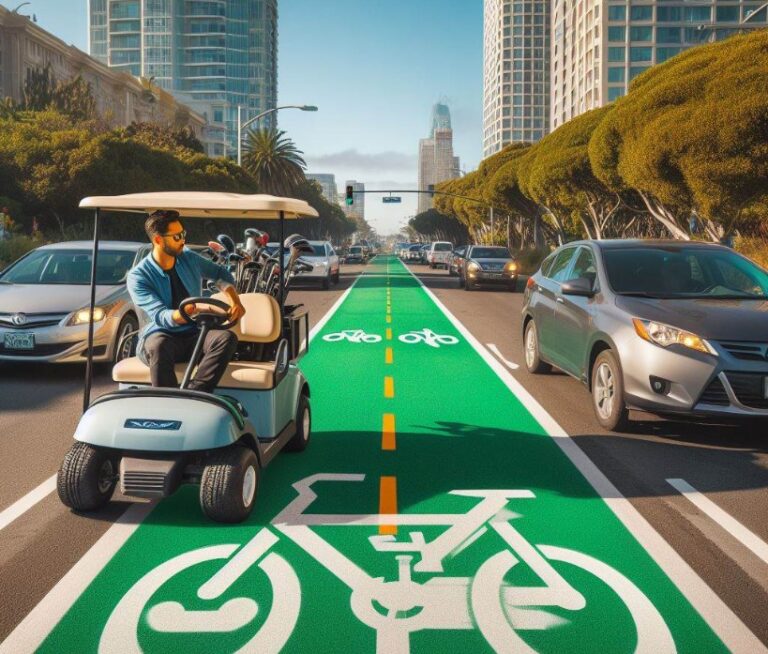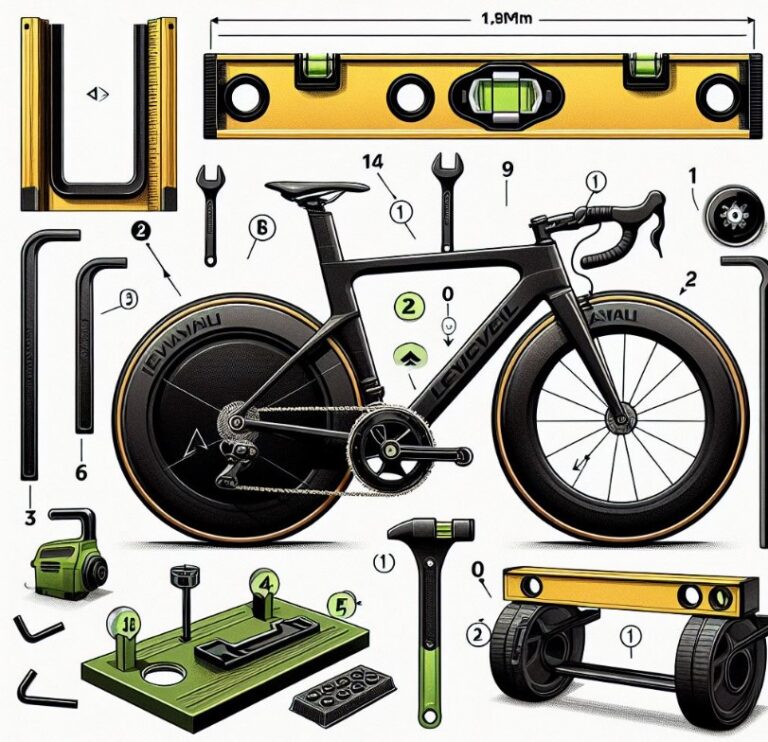Can You Return A Financed Motorcycle To The Dealership?
This article will explain Can You Return A Financed Motorcycle To The Dealership? Navigating the complexities of returning a financed motorcycle to the dealership can be challenging. This guide aims to provide clarity and direction for those contemplating this decision. It’s crucial to understand your financial agreement, potential consequences, and alternative solutions before proceeding. Armed with the right information, you can make an informed choice that aligns with your financial situation and objectives.
Key Takeaways
- Understanding your contract is crucial before attempting to return a financed motorcycle.
- There may be financial implications, such as early termination fees or negative equity.
- Each dealership has its policies; negotiation is often possible.
Can You Return A Financed Motorcycle To The Dealership?
Yes, you can return a financed motorcycle to the dealership, but it’s subject to the terms of your financing agreement and the dealership’s policies. Be prepared for potential financial repercussions, including remaining balance payments and fees.

Understanding Your Financing Agreement
Before considering the return of a financed motorcycle, it’s imperative to thoroughly review your financing agreement. This document outlines your rights and responsibilities as a borrower.
Look for clauses related to voluntary surrender or early termination. These sections will detail the conditions under which you can return the vehicle and any associated costs.
Contracts vary significantly between financing companies. Some may allow for returns under specific circumstances, while others may not permit it at all. Understanding these terms is the first step toward making an informed decision.
The Financial Implications
Returning a financed motorcycle can come with significant financial implications. If the dealership accepts the motorcycle, you may still be responsible for the remaining balance on your loan.
This balance could include additional fees for early termination or depreciation. It’s essential to calculate these costs beforehand to avoid unexpected financial strain.
Furthermore, if your motorcycle has depreciated faster than you have paid off the loan, you may face negative equity. This means you owe more on the loan than the motorcycle is worth, a situation that could lead to additional financial responsibilities upon return.
Negotiating with the Dealership
Negotiation is a critical component when attempting to return a financed motorcycle. Start by speaking with the dealership where you purchased the vehicle.
Explain your situation and ask about any options available for returning the bike. Some dealerships may offer buy-back programs or be willing to negotiate a trade-in for a different vehicle.
Remember, dealerships are under no obligation to accept a return on a financed motorcycle, but they may be willing to work with you to find a solution. Be prepared to discuss your financial situation and any factors contributing to your decision to return the motorcycle.
Alternatives to Returning Your Motorcycle
If returning the financed motorcycle to the dealership is not an option, consider alternative solutions. Selling the motorcycle privately could help you recoup some of the costs and pay off the remaining balance on your loan. You could also explore refinancing options to lower your monthly payments and make the financial burden more manageable.
Leasing a motorcycle is another alternative that could offer more flexibility and lower monthly payments. However, it’s important to weigh the pros and cons of each option and consider the long-term financial impact.
Legal Considerations
Understanding the legal aspects of returning a financed motorcycle is crucial. Depending on your location, there may be laws and regulations that affect your ability to return the vehicle. Consumer protection laws vary by state and may offer some recourse if you’re facing financial hardship or if the motorcycle has significant defects.
It’s advisable to consult with a legal expert or consumer protection agency to understand your rights and any potential legal avenues you can pursue. They can provide guidance tailored to your specific situation and help you navigate the complexities of contract law.
How Can I Get Out Of My Motorcycle Loan?
Getting out of a motorcycle loan requires careful planning and consideration of your financial situation. Here are several strategies:

- Sell the Motorcycle: If your motorcycle is worth more than the outstanding loan balance, you can sell it and use the proceeds to pay off the loan. However, if you owe more than the motorcycle’s value, you might need to cover the difference out of pocket.
- Refinance the Loan: If you have good credit, refinancing your motorcycle loan might offer lower interest rates or extended terms, reducing your monthly payments. However, this could mean paying more interest over time.
- Voluntary Surrender: If you can’t afford the payments and can’t sell or refinance the bike, you might consider voluntary surrender. This will negatively impact your credit, but less so than repossession.
- Loan Modification: Contact your lender to discuss modifying your loan terms. Some lenders may agree to adjust your payment schedule to make it more manageable.
- Trade-In: If you’re looking to get a different vehicle, you might trade in your current motorcycle. Be mindful of any negative equity, as this could be rolled into your new loan.
Remember, each option has financial and credit implications. Consult with a financial advisor or the lender to understand the best choice for your situation.
Can You Change Your Mind On A Motorcycle Purchase?
Changing your mind after a motorcycle purchase is generally challenging due to binding sales contracts. However, some dealerships may offer a cooling-off period or return policy, but this is rare and typically only applies to unused vehicles.
Review your sales agreement and contact the dealership immediately if you wish to cancel the purchase. Be aware that if the dealership allows a return, there might be restocking fees or other costs.
Legally, unless there is a provision in your contract or a state law that allows it, once you sign the purchase agreement, you are bound to its terms. Consumer protection laws vary by state, so it might be beneficial to consult a legal expert if you believe your situation warrants it.
Can I Return A Motorcycle I Just Bought Harley Davidson?
Returning a newly purchased Harley Davidson is dependent on the dealership’s return policy and state laws. Harley-Davidson dealerships are independently owned and operated, so return policies can vary significantly. Some dealerships might offer a short return window for unused motorcycles, but this is not common.

If you’re considering returning a Harley-Davidson motorcycle, contact the dealership immediately to inquire about their specific return policy. Be prepared for potential restocking fees and other costs. If there’s a significant issue with the motorcycle, review the warranty and lemon laws in your state, as these might provide a basis for return or repair.
Can You Defer A Payment With Harley Davidson?
Harley-Davidson Financial Services (HDFS) may offer payment deferral options for customers experiencing financial hardship. If you’re unable to make a payment, contact HDFS directly to discuss your situation and available options.
Payment deferral can provide temporary relief by postponing payments for a set period, but interest may continue to accrue during this time.
Keep in mind that deferring payment is typically considered a last resort, and not all customers will qualify. Be sure to understand the terms and conditions, including how the deferred payments will affect your loan balance and terms.
Conclusion
Returning a financed motorcycle to the dealership is a process filled with financial and legal nuances. Before making such a decision, review your contract, assess your financial standing, and consider all available options.
Communication with the dealership and lender is key to navigating this scenario effectively. While returning the motorcycle is possible, it may come with significant financial implications, making it essential to approach this decision with caution and thorough understanding.
Frequently Asked Questions
What are my rights if I feel I was misled about the motorcycle financing terms?
If you believe you were misled about your motorcycle financing terms, you may have legal recourse. Consumer protection laws, such as the Truth in Lending Act, are designed to protect borrowers from deceptive practices. Gather all your documentation and consult with a consumer protection attorney or a local consumer affairs office to discuss your case and potential actions.
How can I calculate the total cost of returning a financed motorcycle?
To calculate the total cost, consider the remaining loan balance, any early termination fees, potential negative equity, and other associated costs such as towing or storage. Subtract the motorcycle’s current value from this total to estimate your out-of-pocket expenses. Consulting with the dealership or lender can provide a more accurate calculation based on your specific contract terms.
What should I do if I can’t afford my motorcycle payments anymore?
If you’re unable to afford your motorcycle payments, contact your lender as soon as possible. Many lenders are willing to work with borrowers to find solutions, such as modifying the loan terms or deferring payments temporarily. Communicating early can prevent repossession and lessen the impact on your credit score.
Can I refinance my motorcycle loan to avoid returning it?
Yes, refinancing your motorcycle loan is a potential solution if you’re struggling with payments. Refinancing can lower your interest rate or extend your loan term, reducing your monthly payments. However, you’ll need good credit to qualify for better loan terms, and extending the loan term can mean paying more in interest over time.

Welcome to the exhilarating world of Matt Rex, a professional car racer turned renowned vehicle enthusiast. Immerse yourself in his captivating blog as he shares heart-pounding adventures, expert reviews, and valuable insights on cars, trucks, jets, and more. Fuel your passion for speed and discover the beauty of vehicles through Matt’s engaging stories and meticulous expertise. Join the ever-growing community of enthusiasts who find inspiration and expert advice in Matt Rex’s blog—a digital hub where the thrill of speed meets the pursuit of knowledge.





![Is Huffy A Good Bike Brand? [Answered]](https://www.turbochaos.com/wp-content/uploads/2024/02/Is-Huffy-A-Good-Bike-Brand-768x545.jpg)
